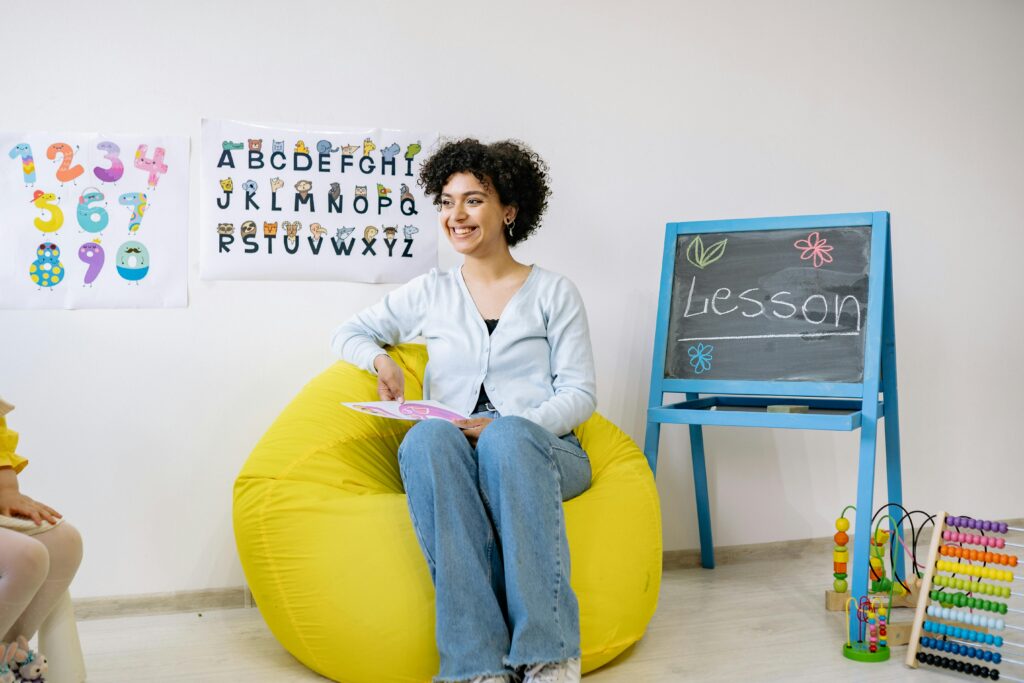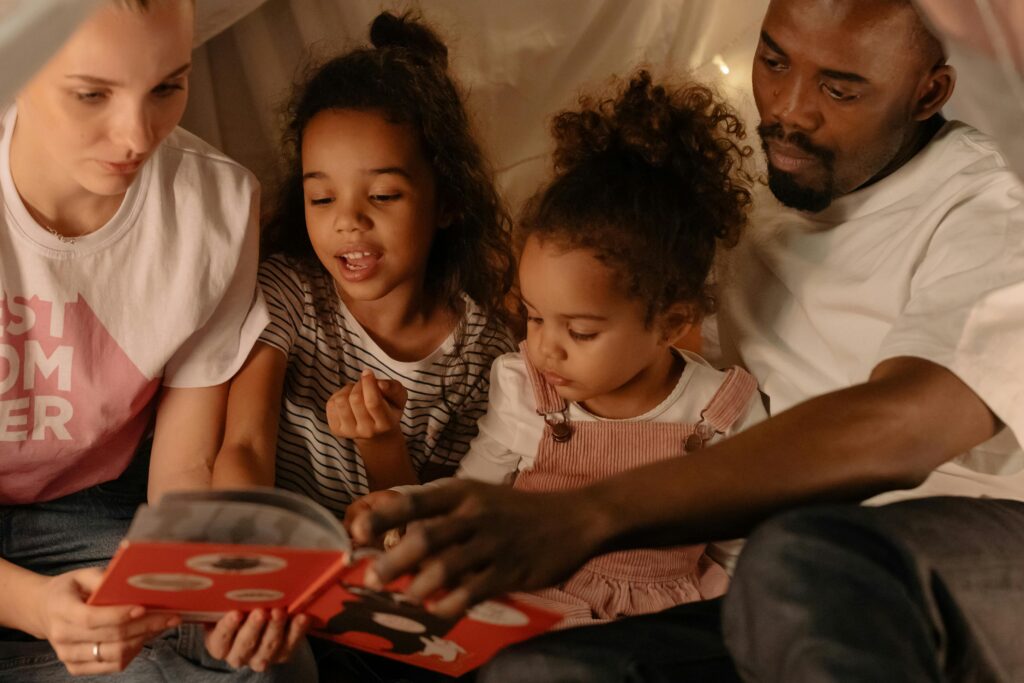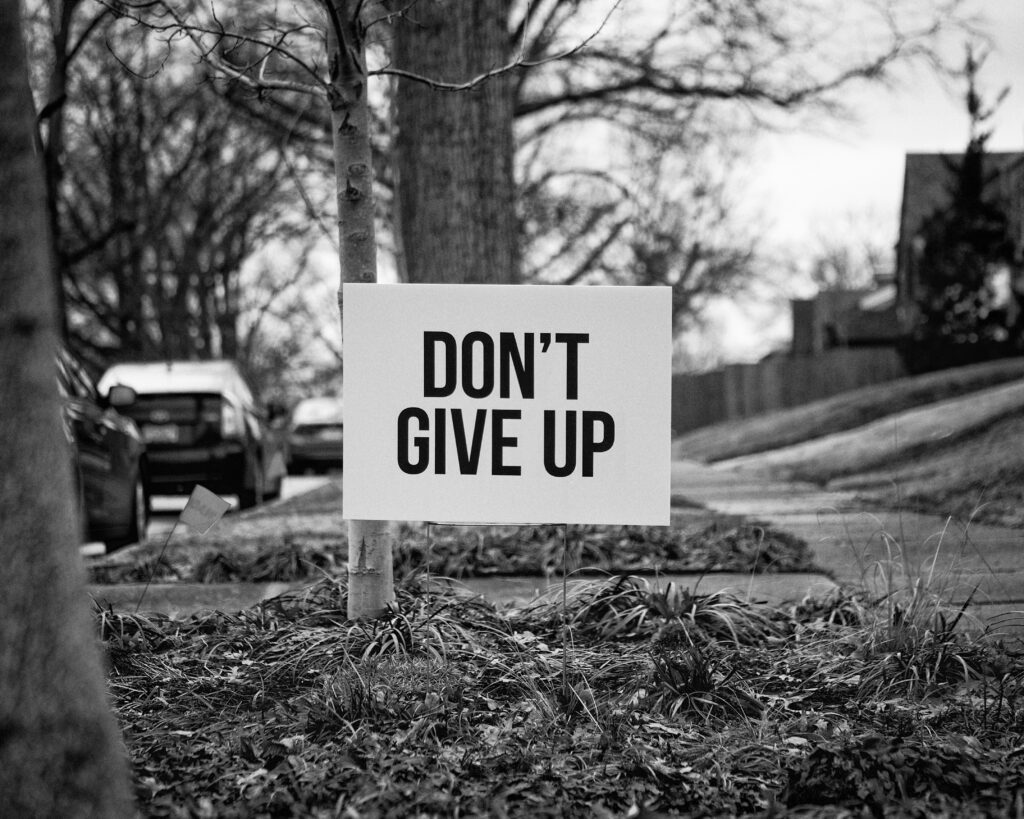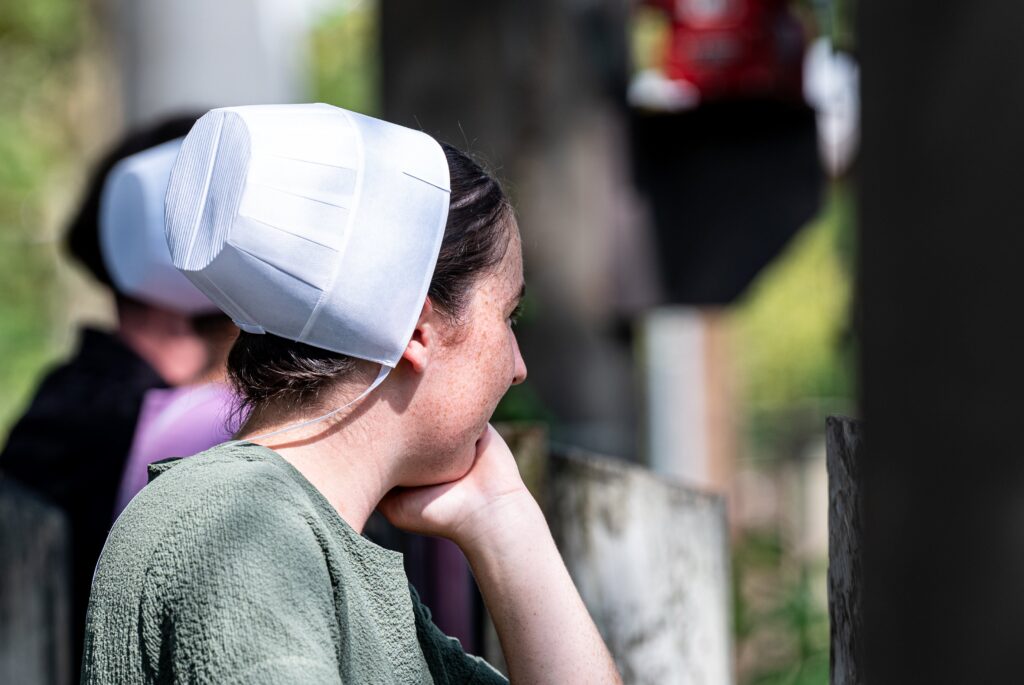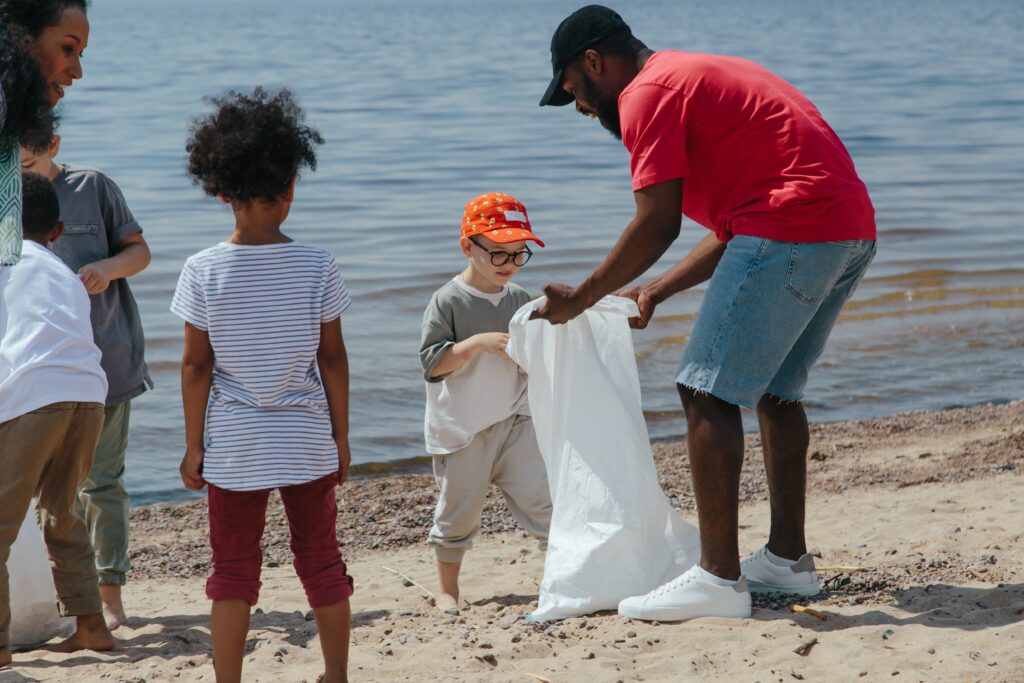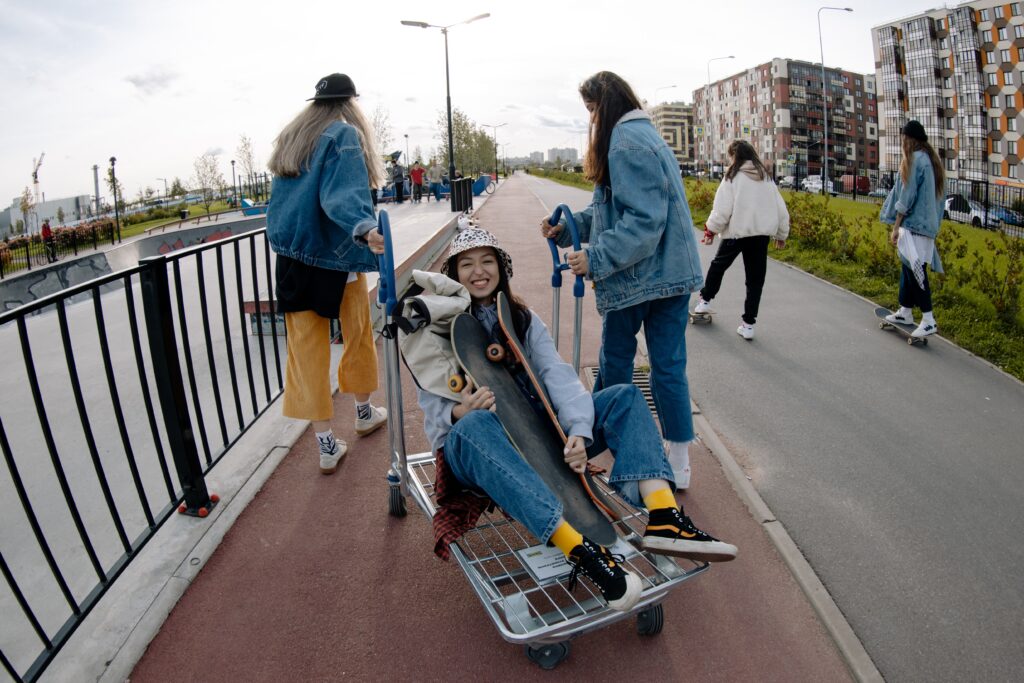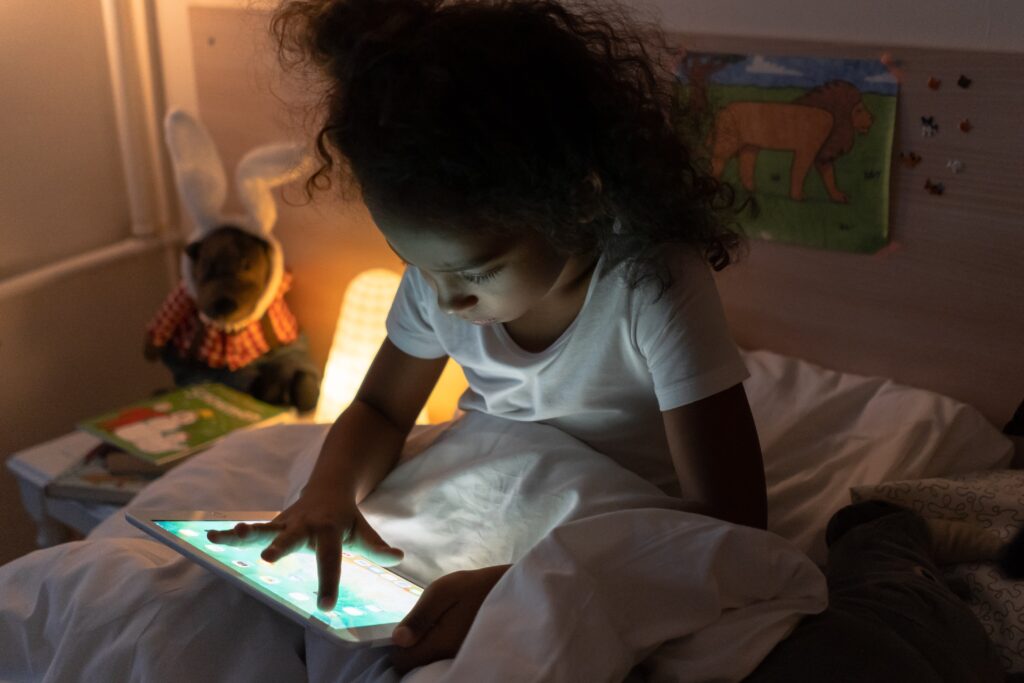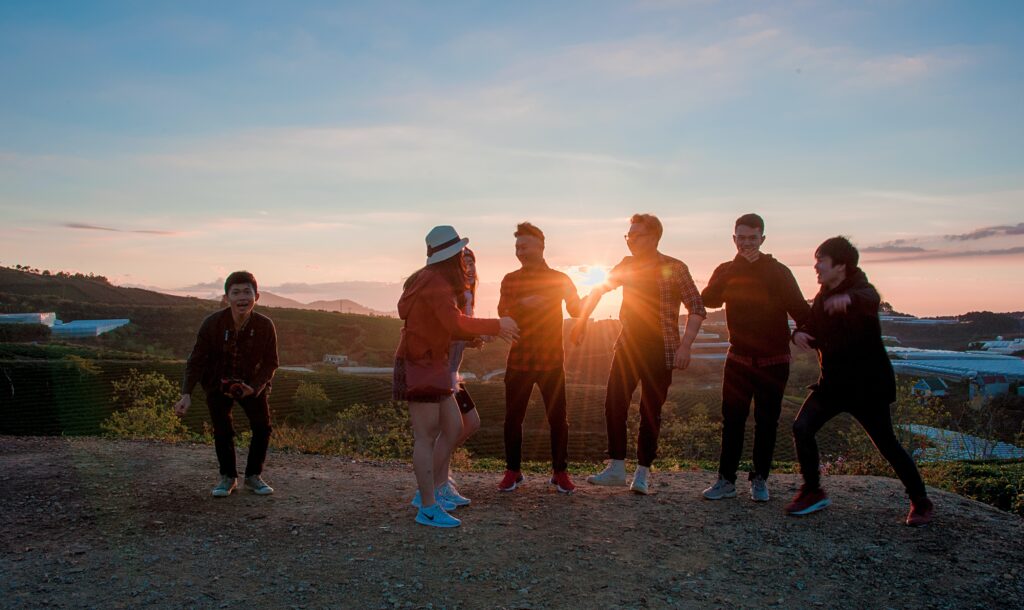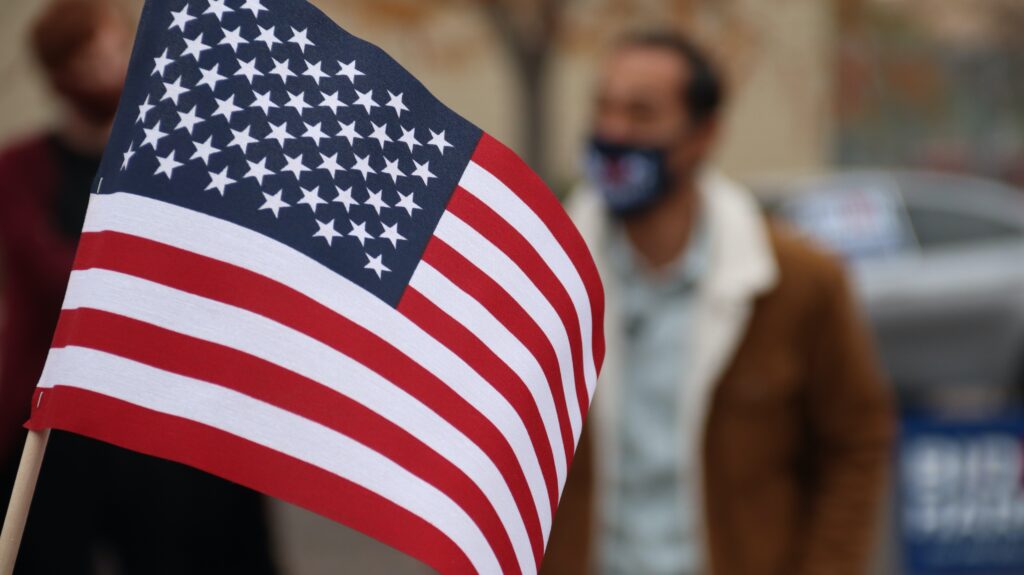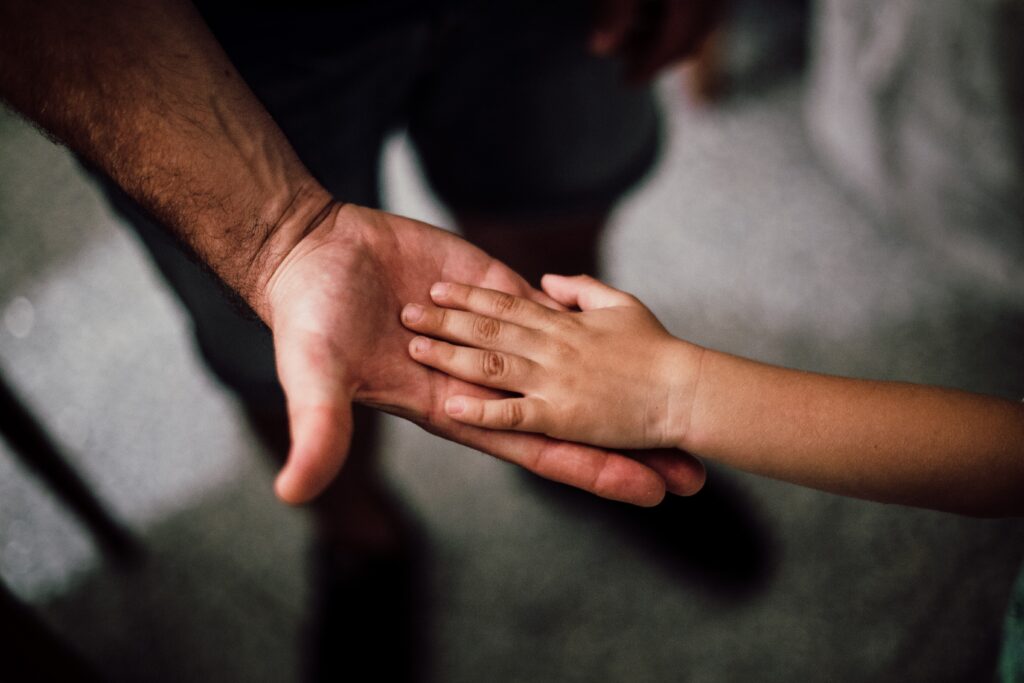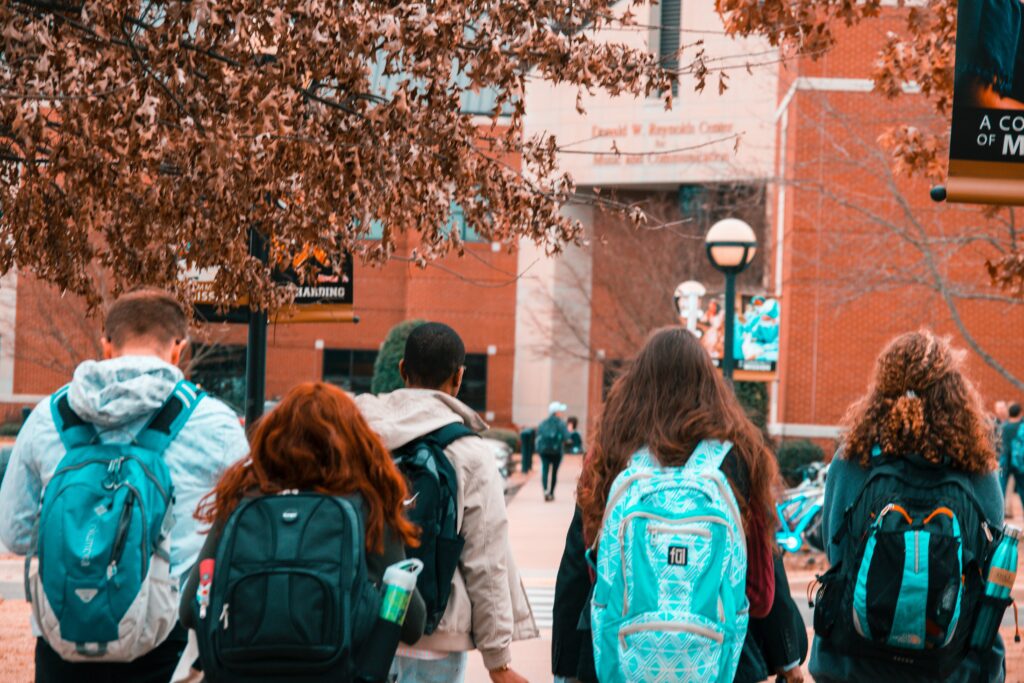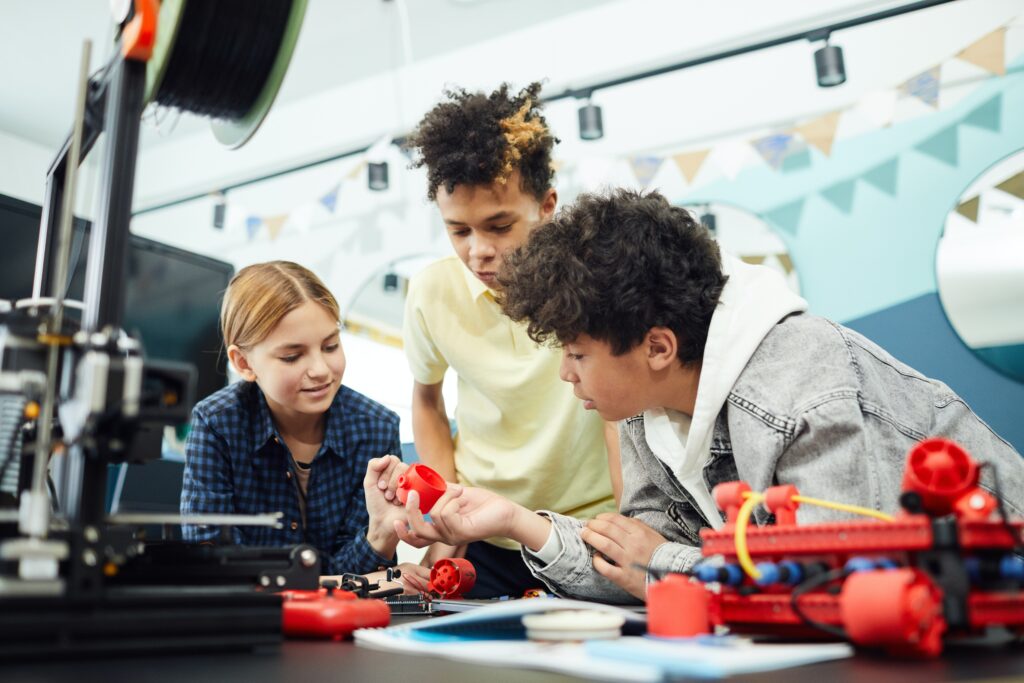The Growing Leaders Blog
Subscribe To Be Notified Of New Blog Posts
Four Strategies to Help You Stop Stereotyping Teens
By Tim Elmore None of us like for others to stereotype us. When we were young, we hated it when adults assumed something was true about us and never gave us a chance to prove them wrong. I wore my hair a bit longer when I was a high school student, and I am certain some of the faculty […]
The Connection Between Kids’ Happiness and Their Expectations
By Tim Elmore Members of Generation Z, by and large, have been raised by parents or guardians who’ve prioritized the importance of happiness. What parent doesn’t want their kids to be happy? We talk about this subject so much that there are bestselling books, webinars, and even university courses on it. But today’s population has bought into a […]
What Teachers Really Want From Their Leaders
By Tim Elmore Last month, I had the privilege again to speak to the “Teachers As Leaders” in Gwinnett County Public School District, just north of Atlanta. What an energizing, curious, and smart community of educational leaders they are! I’m energized every time I’m with them. Thank you, Derrick Berchette, for the invitation. To kick off the day, […]
Four Rules That Could Reverse the Anxiety Epidemic in Teens
By Tim Elmore Most teenagers today are aware of the negative impact of smartphones. By this point, they all seem to know it deepens anxiety, heightens negative emotions, and increases FOMO. Sadly, most students don’t get off the very device that induces these negative consequences because all of their friends are still on them. Cue the cavalry. […]
One Change I’d Make to Engage Kids Better If I Had to Do It Over Again
By Tim Elmore One of the best questions I’ve asked people over the years was this: “If you had to do it over again, what would you do differently?” I’ve received priceless pieces of advice, often born out of regret. I know what I’d say. When it comes to connecting with kids or engaging students, I have […]
A Tool to Foster Better Conversations with Your Kids
By Tim Elmore Let’s face it. It’s harder than we thought it would be. A recent Pew Research Center poll revealed that most parents (62 percent) say that being a parent is harder than they expected, and more than one in four (26 percent) say it’s “a lot harder.” Unfortunately, those little tykes don’t come with an owner’s manual, […]
How to Offer Feedback in a Fragile World
By Tim Elmore When Carol reminded her class about Friday’s exam, she got a surprising text from one of her students. Chelsea’s message said, “I won’t be in class for the test tomorrow. I’m just not my best self this week.” Carol was disappointed but also felt she owed Chelsea some hard truth. When the student returned to […]
Strategies Schools Are Using to Curb Social Media Abuse
By Tim Elmore – These days, I’m reading about school decisions regarding smartphone use, ranging from banning portable devices to displaying laissez-faire attitudes regarding phones. Many educators and support staff feel that students’ constant access to social media on their smartphones harms their mental well-being and hinders their ability to learn. Some educators go so far as to say that […]
Taking Advantage of Natural Junctions in the Day with Your Kids
By Tim Elmore __ I know, I know. Your days each week are crazy. You’re busy. Your kids are busy. And often, family times are reduced to eating chicken nuggets in the minivan while on your way from piano lessons to soccer practice. __ Years ago, my wife, Pam, and our daughter, Bethany, dropped me off at the airport for […]
You Have 3 Options When You Face a Loss This Year
By Tim Elmore Looking back on my life and career, I see more gains than losses. Upon deeper reflection, however, I think my memory is reconstructed. While I recall tragedies, setbacks, and losses, I see them through a different lens than most people do. I’m not in “denial,” but I perceive how each disadvantage became an advantage. A few examples […]
Research that Informs Your Decisions This School Year
By Tim Elmore One of my most common concerns is to miss important information when making decisions. I don’t want to feel I’m in the dark on the data. I want to make informed choices. Below, I have curated recent findings from the Pew Research Center, Gallup, the CDC, and other sources to give you a big-picture vantage point […]
We Don’t Actually Want Our Kids to Be Happy
By Andrew McPeak “To live with joy is to live with wonder, gratitude, and hope.” — David Brooks In 2014, a fascinating report from the Harvard Graduation School of Education’s Making Caring Common Project revealed a startling contrast between the message parents intend to send to their children and the one that is getting through. The report entitled […]
A Secret I Learned That Determines My Level of Hope
By Tim Elmore I met a young woman recently who suffered a tragic accident on the freeway. We hear stories like hers far too often. She was hit by a drunk driver in a head-on collision and was hurt so severely that her parents questioned whether they should unplug the machines in the ICU. Miraculously, she survived, yet now […]
Fighting for Friendship in Your Career
By Tim Elmore I’ve made two observations about friendships as I have grown older. First, the older I get, the less I feel I need people. I know that sounds arrogant but stay with me. I now enjoy a self-sufficient lifestyle after building social equity over 45 years of a career. My second observation, however, is that the older […]
The Correlation Between Cancel Culture and Resilience in Students
By Tim Elmore I will never forget Halloween in 2015. Just prior to October 31, a group of deans at Yale University sent an email urging students to avoid insensitive costume choices. Three days later, Erika Christakis, the co-director of Silliman (one of Yale’s residential colleges) sent her own email to students. She acknowledged “genuine concerns about cultural and […]
My Favorite Books Last Year
By Tim Elmore Each January (as a norm), I publish a list of my favorite books I read the previous year. Many of the books I read in 2023 were good, but not great. The six titles below were life-changing for me. I offer my favorites below. Enjoy. Build the Life You Want by Arthur Brooks and Oprah […]
Leading Kids: Is Empathy or Compassion Better?
By Tim Elmore A high school principal recently told me that the mother of one of his students requested her daughter be taken out of her civics class and moved to a different one. When he asked why, mom explained that she was distracted and anxious in her current class. When he inquired why a different class would be […]
What the Amish Can Teach Us About Getting Kids Ready for Life
By Tim Elmore When my two kids turned 12, my wife and I initiated a special two-year journey that would become a “rite of passage” for them—an experience that would offer vision for what life could look like for them as an adult. We took them on special trips, introduced them to mentors, gave them symbolic gifts, and celebrated […]
A Reminder for the Season: Waiting Is a Good Thing
By Andrew McPeak Can you remember back to the greatest gift you’ve ever opened on a holiday? My own epic memory brings a smile to my face. I remember begging my dad for a video iPod (hello, early 2000s). The problem with my begging was that it occurred in the month of October — a very long time […]
What Students Say Will Motivate Them the Most
By Tim Elmore I once taught a classroom of students with a wide variety of personalities. Some were loud; others were quiet. There were some who were completely engaged, even excited to be there. Then, there were a few who every teacher dreads having in their classroom. I was leading these high schoolers on a project that involved […]
Teaching Students to Stop Waiting for the World to Change
By Tim Elmore Back in 2006, musician John Mayer released a song for millions of twenty-first century young adults. It was called, “Waiting on the World to Change.” While the tempo is upbeat and cheerful, the lyrics represent a melancholy, even despondent mood. They express a powerlessness to make any difference; that the power lies with “the man.” […]
The Value of Exposing Kids to Extremes
By Tim Elmore I enjoyed dinner with a group of business executives in Cancun, Mexico, recently. During our conversation, several spoke about the vacations they’ve taken with their children and how much they relished those trips. Eventually, however, those parents admitted they worried about their kids’ sense of entitlement. After all, they’d experienced places like the Amalfi Coast, Dubai, […]
What Were You Thinking?
By Tim Elmore In 1994, Mother Teresa gave a speech where she recounted the story of four people on the street in Calcutta. She asked the sisters who were with her to take care of three of them, telling them she would tend to the fourth; the one who seemed closest to dying. As Mother Teresa did everything […]
One Change I’d Make to Engage Kids Better if I Had to Do It Over Again
By Tim Elmore One of the best questions I’ve asked people over the years was this: “If you had to do it over again, what would you do differently?” I’ve received priceless pieces of advice, often borne out of regret. I know what I’d say. When it comes to connecting with kids or engaging students, I have […]
A Tool to Foster Better Conversations with Your Kids
By Tim Elmore Let’s face it. It’s harder than we thought it would be. A recent Pew Research Center poll revealed that most parents (62 percent) say that being a parent is harder than they expected, and more than one in four (26 percent) say it’s “a lot harder.” Unfortunately, those little tykes don’t come with an owner’s manual, […]
Rent a Mom When You Head to College
By Tim Elmore It used to be that mom and dad’s role was to love their children and to get them ready to be on their own at eighteen when they leave home. It wasn’t just about protecting their kids but about preparing them for life. Unfortunately, many parents and guardians haven’t done such a good job of […]
Six Crippling Realities We Must Address in Today’s Kids: Part 3
By Tim Elmore This is part three of a three-part series that breaks down the six realities that kids today are facing. To read part one of the series, click here. Today, we look at the final part of a three-part series on crippling realities that handicap today’s kids socially, emotionally, physically, intellectually, and spiritually. So far, we’ve […]
Six Crippling Realities We Must Address in Today’s Kids: Part 2
By Tim Elmore This is part two of a three-part series that breaks down the six realities that kids today are facing. To read part one of the series, click here. It’s funny how many unhealthy practices were once considered healthy and helpful by medical authorities. Products and drugs we now know to be destructive were once considered […]
Six Crippling Realities We Must Address in Today’s Kids: Part One
By Tim Elmore I spoke to an audience of parents recently and found a common thread among their concerns for their children. One after another shared how their child or teen: Needed extra attention to complete assignments. Was easily upset or paralyzed by normal hardships. Hesitated to take on new projects or opportunities. Struggled to adapt to new situations. […]
How to Cultivate Conversational Intelligence in Students
By Tim Elmore Kristie is a close friend who just sat beside a 22-year-old on a flight from New York to Los Angeles. She told me the young lady talked for hours. It was an insightful exchange that gave Kristie a peek into the world of Generation Z. She felt like she was talking to someone mimicking a social […]
Taking the Easy Route
By Tim Elmore Most moms with young children are exhausted. At least the ones I meet are. They don’t regret having kids, nor do they resent the parenting journey. They’re just weary. Younger kids can sap the energy right out of you. I recall a humorous story about a mom who was with eight children at the park one […]
Nine Ideas for Teaching Moderation to Our Students
By Tim Elmore This is part two of a blog series that began last week by discussing the dopamine addiction felt by many students. To read the first blog in this series, click here. Last week, I wrote about the fact that we live in a generation that’s addicted to dopamine. We live in a society that loves […]
Drunk on Dopamine
By Tim Elmore Our kids today are growing up in a world where they can become addicted to happy chemicals. Let me explain. We live in a society that loves to “binge” on things we like. It may be addictions to drugs or alcohol, but it can also be simple pleasures like Netflix, TikTok, or even junk food. […]
A Lonely Generation Passionate For Relationship
By Kiera Colson Our blog today was authored by Kiera Colson. Kiera is a 19-year-old sophomore at Lee University and was an intern with us at Growing Leaders this past summer. Kiera is a brilliant young leader who is passionate about seeing her generation grow into their highest potential. A two-week surprise vacation turned into a two-year realization […]
Three Doable Ideas to Retain Generation Z Team Members
By Tim Elmore When I talk to managers who say they lose young team members almost as quickly as they hire them, I am troubled. Corporate managers are asking a recent graduate to join a workforce that seems impersonal, like they’re a cog in the machine. While we know it’s tough for those young team members to make the […]
Three Realities That Define Generation Z’s Perception of Leaders
By Tim Elmore I consistently meet executives who are confounded by the attitudes of their younger team members. These leaders witness their rookie colleagues fail to show any commitment or leave after just months on the job. My friend Carl is president of his company and recently met with Hilary and Collin, both young employees who are less […]
Teacher Life Hacks: Two Strategies to Increase Student Engagement
By Tim Elmore Dennis Cook was one of my teachers during my junior year of high school. He was a very effective educator. Upon reflection, I can see now that Mr. Cook focused on connections in his classroom as much as the coursework. By taking time to do this, he accelerated our learning and growth. Mr. Cook practiced […]
Four Ideas to Cultivate Young Leaders
By Tim Elmore I once mentored a student named Rick who could have been voted by his classmates: The Least Likely to Become a Leader. He was unassuming, never assertive, quiet, and even introverted. In fact, I scared him the first time I suggested he should lead a group of peers. When he balked, I knew I needed to […]
How to Stop Faking Courage and Actually Practice It
By Tim Elmore I have not always been a courageous leader. I began my career as a people-pleaser, only appearing to be a leader with convictions. When it came down to making a tough call, I sometimes buckled under the pressure of appeasing others. In my twenties, I neglected to step in and confront a conflict between two […]
A New Wave of Teens Are Breaking Away From Social Media
By Andrew McPeak If you are lucky on Sunday afternoons on the steps of Central Library on Grand Army Plaza in Brooklyn, NY, you can watch as one by one, the members of the Luddite Club assemble together. They never know exactly how many members are going to show up because most of them have chosen to give up […]
How to Bring Balance to Toxic Competition
By Tim Elmore Have you noticed? Competition rules our day, especially for kids. Students experience constant competition with peers surrounding academic grades, indoor and outdoor sports, social media followers, video gaming, college scholarships, even friends. What’s more, we rank everything. Today, everyone is either an adversary or an ally. I should acknowledge that I’m a competitive person. […]
Leading Disengaged Young People
By Tim Elmore I know a young woman who hosted a graduation party upon finishing college. As she and her boyfriend planned the party together, they decided to create an invitation that included a suggestive photo of the two of them. While it doesn’t show anything private, they appear to be naked behind a wall and smiling as she […]
America: Junk or Jewel?
By Tim Elmore You’d have to be an ostrich with its head in the sand to miss what’s happened to our country over the last decade. We are polarized on many issues, but chief among them is how to even view our nation: Is America junk or a jewel? One side of this issue points out how pitifully […]
Six Ideas for Building a Work Ethic into Generation Z
By Tim Elmore Bob Wagner is hiring for three positions at his plastics manufacturing company. In the past, he’s filled these positions with high school and college students as well as recent graduates. These days, he is interviewing older job candidates. In fact, his top candidate is 72 years old. Why? you ask. Bob would tell you […]
Guiding Kids in a Day of Hyperbole
By Tim Elmore Have you noticed everything today seems exaggerated? Life is happening at high volume and intensity. In a space crowded with noise, capturing people’s attention is the currency. In such an era, we tend to use hyperbole as we communicate. We send text messages using all CAPS, three emojis, and several exclamation points at the end […]
Helping Students to Balance Judgment and Tolerance
By Tim Elmore You may remember watching the movie, Mean Girls. It was an iconic film for Millennials back in 2004. The story was about mean-spirited high school students who required an intervention because of their judgmental attitudes toward frenemies. The movie was rightly named. For that matter, the film Top Gun: Maverick, while it contained stellar comradery, was […]
How to Simplify Students’ Lives Without Making Them Easier
By Tim Elmore Jamie teaches English Literature to high school seniors. She’s also a mother of two teens, so she sees the stress levels of young people today from both angles. She knows deep down that kids need a little stress to perform at their best, but she hates witnessing such anxiety in them. It’s a common narrative: […]
The Connection Between Portable Devices and Substance Abuse in Teens
By Tim Elmore In the past few years, there has been an alarming rise in substance use among youth in the U.S. The National Center for Drug Abuse Statistics reports that 2.08 million teens, ages 12 to 17, reported using drugs in the last month. They deemed this issue a public health crisis. We already know the high rates […]
How to Turn Frustration into Fascination as You Lead Young People
By Tim Elmore Jason couldn’t believe what he heard from the young job candidate. She became irritated twenty minutes into the interview and exclaimed in a loud voice that the interview was taking too long. Ted, another hiring manager, told me a job candidate walked over and touched his chest to find a heartbeat so they could connect “heart […]
How to Stop Imitating and Start Originating
By Tim Elmore Years ago, social researchers revealed how little the average person thinks on their own. They reminded us that the law of diffusion is constantly in effect and explains human behavior: 2.5 percent of us are innovators. 13.5 percent of us are early adopters. 34 percent of us are the early majority. 34 percent of us are […]



